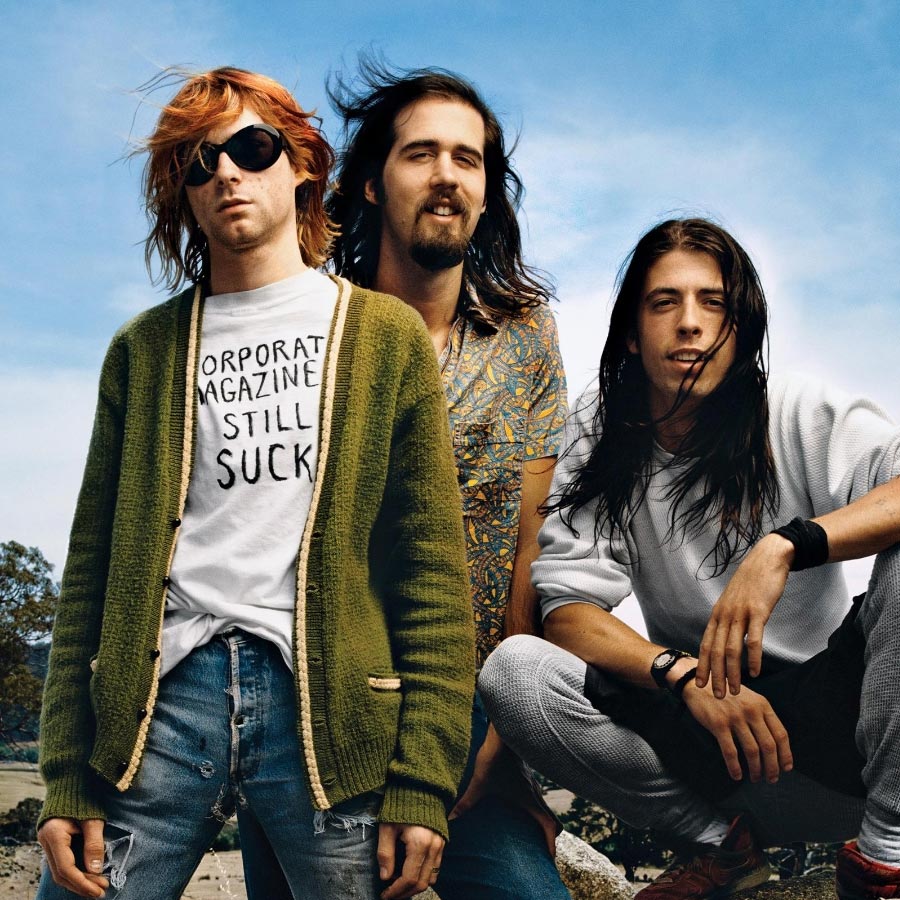When we talk about iconic musical groups, it's hard not to mention Nirvana. This band didn't just leave an indelible mark on rock history; it became a symbol of an entire era, transforming the musical and cultural landscape of the 90s.
It all began in the early 90s when the music scene was full of glamorous rock stars with hairstyles shining under the spotlight. Nirvana appeared as a breath of fresh air amidst the overly polished pop culture. Their sound blended elements of punk rock and grunge—a style that itself was a form of protest against glam rock. Punk rock, with its raw sounds and anti-authoritarian lyrics, served as the ideological foundation for the band, but Nirvana brought not just noise and rebellion, but also intricate textures and dynamic structures to their music.
When the album "Nevermind" was released in 1991, the music world was stunned. The album was not just a collection of songs but a meticulously crafted piece where every note and chord was filled with emotion and sincerity. The single "Smells Like Teen Spirit" was not just a hit; it became an anthem for a generation tired of monotony and superficiality. This song not only topped the charts but set new standards in music, merging heavy riffs with melodic choruses.
Kurt Cobain, the band's frontman, was not just a musician but a symbol of an entire generation. His appearance—with messy hair, ripped sweaters, and torn jeans—became the hallmark of grunge and resistance to the mainstream. But more importantly, his deep, often dark lyrics and vocal expressiveness gave Nirvana's songs such power. Cobain articulated complex and often painful emotions such as alienation, self-destruction, and inner conflict. His ability to openly speak about personal demons and social injustices resonated with many who felt lost or misunderstood.
Nirvana's songs were distinguished not only by their emotional depth but also by their musical quality. They skillfully combined simplicity and complexity: aggressive guitar riffs and powerful drums were paired with melancholic and contemplative lyrics. This created a unique sonic landscape that was both powerful and penetrating. The superb production of the albums "Nevermind" and "In Utero" allowed the band to showcase their craftsmanship, creating recordings that were both raw and detailed.
The band became the voice of a generation that grew up on Nirvana's music. The youth raised on their songs found a reflection of their own experiences and emotions. Nirvana's music provided them with a platform to express their feelings and discontent, giving a voice to those who felt sidelined by society. This generation, shaped by the sounds of grunge, became more self-reliant and critical, striving for authenticity and genuine self-development.
After Kurt Cobain's tragic death in 1994, Nirvana remained in the memory as a reminder that even in a world full of commodified culture, one can be sincere and revolutionary. Despite the band's breakup, its influence is still felt today. Nirvana's music continues to inspire new generations, maintaining its place in musical history and remaining a symbol of rebellion and sincerity.
Thus, Nirvana became a cult band not only due to their unique sound and music quality but also due to their ability to evoke deep emotions and challenge societal standards. It was more than just music—it was a manifesto against everything they considered false and superficial. And that is why their legacy lives on today.


















